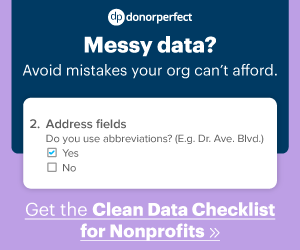This post was originally published here (Center on Nonprofits and Philanthropy)
New York City shows a tremendous need for robust social services. Nearly 3.8 million people (45 percent of residents) live in poverty or just above the threshold—and income inequality continues to rise. Approximately 1.4 million New Yorkers face food insecurity, and more than 400,000 people live in public housing. New York City has the largest number of youths disconnected from school and employment in the country, and fewer than three-quarters of the city’s youths complete high school. These needs were recognized by the Office of the Mayor in its long-term strategic plan, One New York: The Plan for a Strong and Just City. The plan seeks to ensure all New Yorkers have access to “high-quality, conveniently located, community-based city resources that promote civic engagement.” With this goal in mind, NYC Service founded City Service Corps to unite a diverse group of AmeriCorps members to serve full time at city agencies and, in the program years studied for this report, community-based organizations to address pressing community needs and help make the City of New York more equitable. The Urban Institute conducted an evaluation of the City Service Corps program to assess how much organizations benefit from the City Service Corps members’ service, the extent to which members gain valuable skills, and whether they continue to be civically engaged after completing the program. This evaluation focused on the first two program years, 2015–16 and 2016–17.
Key research findings include the following:
The clear majority (86 percent) of City Service Corps members reported that their work made a positive difference in the community. In addition, 83 percent of City Service Corps alumni reported that they have a clear understanding about city government and how it works.
City Service Corps members support the operational capacity of their host sites. Site supervisors reported that members help expand services and improve efficiency. At many locations, City Service Corps members’ work further builds a foundation for long-term organizational needs and priorities.
Host sites support opportunities for City Service Corps members to grow their skills, preparing them for their postservice plans. Almost universally, City Service Corps members reported that they considered the ability to gain skills and experience a motivation for joining and agreed that their service provided them with that experience. Specifically, members reported improved project management, time management, and team leadership skills.
Many City Service Corps alumni continue their civic engagement after their terms end. At least 40 percent of City Service Corps alumni report that they are more likely to volunteer, keep informed about public issues, and participate in community organizations than they were before they enrolled in the program. In addition, 75 percent of alumni reported voting in at least some local elections over the past 12 months.
Overall, these findings show that City Service Corps has a positive impact on both members and host sites. While measuring the effect on the larger community is beyond the scope of this analysis, both members and host site staff and supervisors report the City Service Corps allowed sites to increase capacity and make a difference for the people who they serve.








